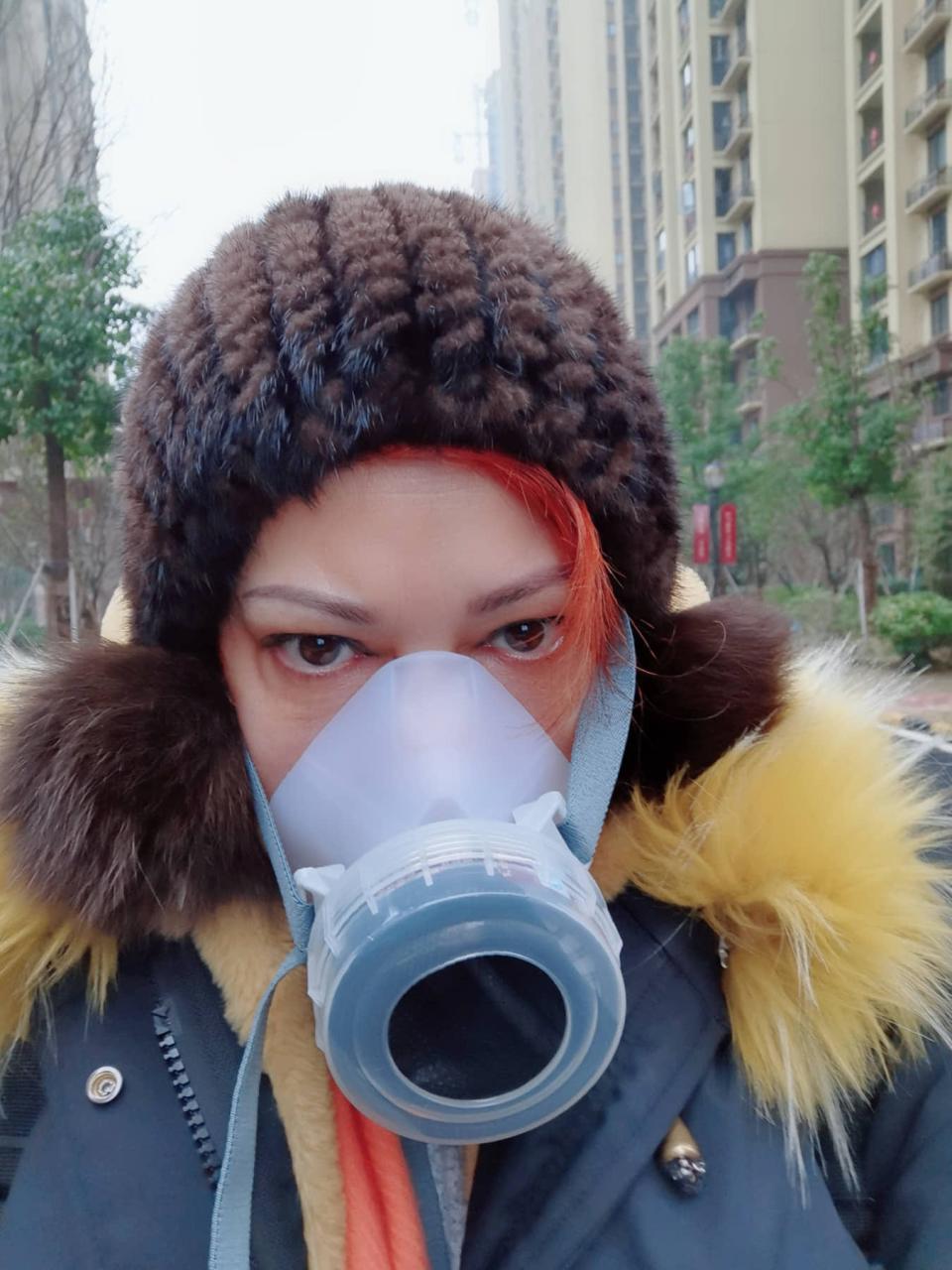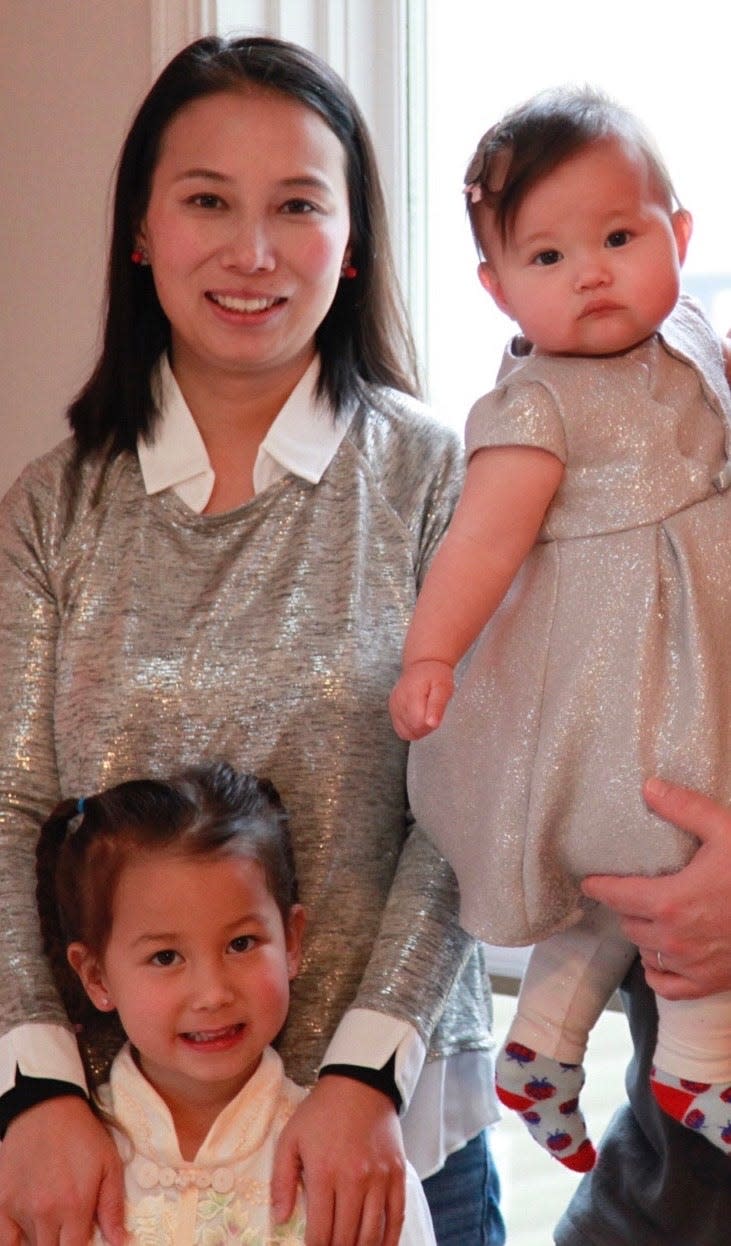'Getting a little squirrely': Americans stuck in Wuhan are bored, hungry for coronavirus info
John McGory had just celebrated his going-away party in Wuhan, China, when a man in black jumped on the metro with a bullhorn and told passengers to leave the train immediately. Nine days later, McGory's still stuck in the epicenter of the coronavirus outbreak.
"Nobody’s working. Nobody's going anywhere. Nobody's on campus," McGory, an English teacher at a university in Wuhan, told USA TODAY. "I was out walking with friends and some other teachers. We’re all getting a little squirrely."
While a group of Americans left Wuhan on a State Department evacuation flight early Wednesday, hundreds more were unable to secure a seat on the flight or chose to stay behind, leaving many to battle boredom and a lack of information as the city shuts down offices, schools and public transportation.
About 1,000 Americans are in Wuhan, a city of 11 million in central China. The city is one of more than a dozen under tight lockdown as the government struggles to contain the virus, which has killed 133 people in China.
"People are afraid," McGory said. "People don’t know what’s going to happen. You get a little sore throat – is that the beginning of the end? It's a battle inside your own head."
Originally from Youngstown, Ohio, McGory has lived and worked in Wuhan for six years. He had just finished writing his first book, resigned his job and applied for a two-week visa extension when his brother in Columbus mentioned that he'd heard reports of a virus in Wuhan.
Days later, the U.S. Embassy called McGory to offer him a seat on the plane out of Wuhan. When McGory said he didn't have his passport because he had applied for an extension, the embassy "virtually hung up the phone," he said.
To pass the time, McGory goes for walks every day for an hour or so, watches college basketball highlights, cooks and tries to keep a regular pattern. This week, he's been into David Lean movies.
"I guess my next book’s going to be 'Quarantined in China,' " he joked.
Coronavirus travel warnings: United becomes first US airline to cancel China flights
For Diana Adama, an American teacher and education researcher, the biggest battle is grappling with a lack of information. Adama has lived in China for about 14 years and moved to Wuhan in September.
"We’re kind of paralyzed. We’re not getting information from the government, school, nothing," said Adama, who found out about the Wuhan lockdown from Twitter. "We’re all cooped up here knowing nothing. We are sitting here on ground zero not knowing what to do or who to believe."

Adama, who has a background in emergency management, started coordinating communication efforts among expats in Wuhan. She's active in about a dozen group chats on various social platforms and started building a website Wednesday to streamline updates. She's had to fight trolls and disinformation spreading in the groups.
Some Americans, such as Adama, have access to virtual private networks, which allow them to break through China's "Great Firewall" to access thousands of banned websites, such as Facebook, YouTube, Reddit and more.
Adama said she receives periodic but "generic" emails from the U.S. government. Most of the information she and McGory receive is from friends and family, as well as updates posted in various groups, including WeChat. Some Americans say they receive updates from congressional representatives.
"There is no action plan, so we’re doing the best" they can, Adama said. "The other governments are taking care of their people. Our government is doing not a damned thing for us. Yeah, they transported people out. But all they’re doing is getting their consulate people out and making money off the seats."

Whereas McGory was forced to stay in Wuhan, Adama said she chose to stay.
"A few of us are staying, and there’s reason we won’t leave. I’m staying here because it's my home. Everything I own is here. My birds are here. And I don’t want to go out there and infect other people," she said.
Adama said her neighborhood has plenty of food and receives packages. What residents really need, she said, is supplies.
"We need vitamins. We need masks. We need rubber gloves. We need hospital-grade shoe covers that are the right level," Adama said. "We need goggles. People think it's stupid, but you touch your eyes how many times a day?"
Adama said she knows a mother and daughter who were not allowed to board the plane out of Wuhan. McGory said he's close with a couple expecting a baby in two weeks.
Sam Roth, 35, said his wife, Daisy, and two children were unable to reserve seats on the plane.
Daisy Roth and her 10-month-old and 5-year-old left Wisconsin to visit family in Wuhan on Jan. 19, when they had just begun hearing about coronavirus.
"We were a little bit apprehensive about it," Sam Roth said. "We thought this disease would die down ... and that it would be fine if they waited it out. But hindsight’s 2020."
Five people across three generations are holed up in one Wuhan apartment with plenty of food and baby supplies, said Roth, who lives about a half-hour south of Green Bay.

"They draw pictures, watch movies, practice math and reading. They sleep," Roth said. "It's kind of like when it’s stormy and the power goes out and you have to find what to do for an extended period of time."
Roth said he panics when he wakes up each morning to see the death and infection tolls rising. That anxiety subsides when he speaks with his family on the phone. His daughter likes to show him whatever picture she's drawn that day.
"The media makes it look like it’s something of an apocalypse. But the reality on this ground is, people are just trying to live normally because what else can they do? The disease is dangerous as it is, but public panic, and the reactions that come with panic, is something we can control. And we should," Roth said.
Americans flee Wuhan: Coronavirus deaths, infections boom in China
The Department of State is working with the government of China to identify alternative routes for U.S. citizens to depart Wuhan over land, according to an email from the office of U.S. Rep. Glenn Grothman, R-Wis.
Some Americans posted video updates documenting their time in Wuhan. Pennsylvania native Scott Allis said in a Facebook video that he passed the time drinking coffee and surfing YouTube. American Kellie Martin and friend Avinash Divecha uploaded a video to YouTube on Monday narrating their trip to Walmart to buy groceries.
Other Americans said they were afraid to speak publicly about the situation in Wuhan.
"The atmosphere of foreigners has changed, so the exchange of information is not good," Adama said. "It's not a movie."
Contributing: John Bacon, USA TODAY
This article originally appeared on USA TODAY: Coronavirus: Americans quarantined in Wuhan, China, seek virus updates

